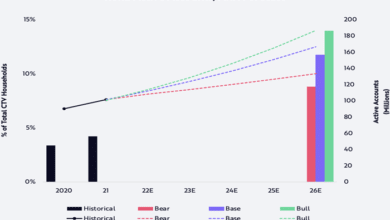Learn to Sit Back and Observe: Not Everything Needs Your Reaction – Tymoff’s Timeless Wisdom

Introduction
In a world that’s always on the move, the advice to “learn to sit back and observe. not everything need – tymoff” stands as a beacon of wisdom. This phrase encapsulates the essence of mindfulness and the power of observation. In this blog post, we’ll delve into the significance of this advice, exploring its benefits and practical applications in our daily lives. By the end of this read, you’ll understand why sometimes, the best response is no response at all.
The Essence of Observation
Learning to sit back and observe is a skill that can transform your perspective on life. By embracing the advice “learn to sit back and observe. not everything need – tymoff,” we can cultivate a mindset that prioritizes observation over reaction. Observing allows us to gather information, understand situations better, and make informed decisions without the haste of immediate reactions.
The Power of Non-Reactivity
Non-reactivity is at the heart of Tymoff’s wisdom. When we “learn to sit back and observe. not everything need – tymoff,” we acknowledge that not every situation demands our immediate response. This practice helps in reducing stress, avoiding unnecessary conflicts, and maintaining emotional equilibrium. By observing first, we give ourselves the space to respond thoughtfully rather than impulsively.
Mindfulness in Practice
Mindfulness is closely linked to the idea of observation. To “learn to sit back and observe. not everything need – tymoff” is to practice mindfulness. This involves being fully present in the moment and paying attention to our thoughts and surroundings without judgment. Mindfulness helps us to observe our own reactions and understand them better, leading to a more balanced and peaceful life.
The Benefits of Patience
Patience is a virtue that’s often overlooked in our fast-paced society. However, when we “learn to sit back and observe. not everything need – tymoff,” we inherently practice patience. This patience allows us to see the bigger picture, understand the dynamics at play, and respond more effectively when the time is right. It also helps in cultivating a sense of inner peace and resilience.
Enhancing Self-Awareness
Self-awareness is another crucial aspect of Tymoff’s advice. By taking the time to “learn to sit back and observe. not everything need – tymoff,” we become more aware of our own thoughts, emotions, and behaviors. This heightened self-awareness can lead to personal growth, better decision-making, and improved relationships with others.
Applying Tymoff’s Wisdom in Daily Life
Incorporating the wisdom to “learn to sit back and observe. not everything need – tymoff” into our daily lives can be transformative. Whether it’s in our personal relationships, professional environments, or social interactions, this approach can help us navigate challenges more effectively. By observing first, we can respond with clarity and purpose rather than reacting impulsively.
The Art of Letting Go
Part of learning to “sit back and observe. not everything need – tymoff” is understanding the art of letting go. Not every situation or comment requires our engagement. By letting go of the need to control or react to everything, we can focus on what truly matters. This practice can lead to a more fulfilling and less stressful life.
Building Emotional Resilience
Emotional resilience is the ability to adapt to stressful situations and bounce back from adversity. When we “learn to sit back and observe. not everything need – tymoff,” we build this resilience. Observing without immediate reaction allows us to process our emotions and respond in a more measured and effective way, thus enhancing our ability to cope with life’s challenges.
The Role of Observation in Communication
Effective communication often requires more listening and less talking. By adhering to the advice to “learn to sit back and observe. not everything need – tymoff,” we can become better communicators. Observing others’ body language, tone, and words allows us to understand their perspectives better and respond more thoughtfully, fostering better relationships.
Cultivating Inner Peace
Ultimately, the advice to “learn to sit back and observe. not everything need – tymoff” is about cultivating inner peace. By reducing the need to react to every stimulus, we can create a more serene and balanced inner world. This peace translates into our outer lives, affecting how we interact with others and handle life’s challenges.
Conclusion
The timeless wisdom encapsulated in “learn to sit back and observe. not everything need – tymoff” offers a path to a more mindful, patient, and resilient life. By embracing observation over reaction, we can navigate our daily lives with greater clarity and peace. This practice not only enhances our personal well-being but also improves our relationships and decision-making processes. Remember, not everything needs your reaction. Sometimes, the best action is to simply observe.
FAQs
1. What does “learn to sit back and observe. not everything need – tymoff” mean?
The phrase means taking a step back to observe situations without feeling the need to react immediately. It emphasizes mindfulness and the power of non-reactivity.
2. How can I practice observing without reacting?
Start by pausing before responding to any situation. Take deep breaths, focus on your surroundings, and try to understand the context fully before deciding if a reaction is necessary.
3. What are the benefits of following Tymoff’s advice?
The benefits include reduced stress, better decision-making, improved relationships, enhanced self-awareness, and greater emotional resilience.
4. Can this approach help in professional settings?
Yes, by learning to sit back and observe in professional settings, you can make more informed decisions, communicate more effectively, and handle workplace conflicts with greater poise.
5. How does mindfulness relate to this advice?
Mindfulness involves being present and aware without judgment. “Learn to sit back and observe. not everything need – tymoff” is a practice of mindfulness, helping you to stay present and respond thoughtfully.




